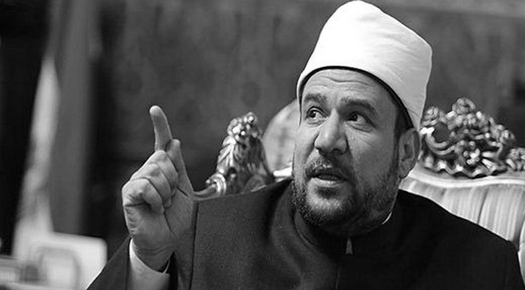
Last month, Mohamed Mokhtar Gomaa, Minister for Religious Endowments in Egypt, called for an international law that would criminalize contempt of religion and make punishable any person that publishes caricatures or articles that happen to ridicule or insult religions. While contempt of religion is already criminalized in Egypt, with prison sentences of up to five years and hefty fines of up to 1,000 Egyptian pounds, in recent years, people have been arrested more frequently on such charges and had to face trial for the same.
While addressing eminent personalities at a conference for world religious leaders in Kazakhstan last month, an important official from Gomaa’s ministry made the official announcement for his proposal. Even though President Abdel Fattah al Sisi has not publicly yet weighed in on Gomaa’s proposal, he has for some time been urging Egypt’s Muslim institutions, including Dar Al Iftaa and Al Azhar, to renew existing religious discourses. In the past, al Sisi has in fact stressed on the need to correct religious speech so that it complies with liberal Islamic teachings. He has also insisted that both the bodies ensure sectarian disputes are eliminated while religious extremism is eradicated in Egypt.
However, this is not the first time that such a proposal has been pitched. Last year, after the horrifying Charlie Hebdo attacks claimed the lives of 12 media personalities in Paris, International Union of Muslim Scholars from Qatar, called for the protection of prophets and demanded that all Muslim countries submit a draft law to the United Nations that would outlaw the defamation of religions. IUMS said, with such pressure, the United Nations would feel compelled to issue a law that criminalizes contempt of religions, prophets as well as holy sites.
Even though Gomaa has said that such an international law should be used to criminalize contempt of religion globally, without any bias, skeptics wonder whether such a statute would not call for selective enforcement based on personal views. The legal organization, Arabic Network for Human Rights Information, warned that such a law would cause anyone that publishes an article, pictures or any information on any religion that does not comply with the views of the ruling faction, to be presented in court.
ANHRI’s warning may seem like an exercise in hyperbole but ground reality shows how selective enforcement of blasphemy laws are a common occurrence in nations that still recognize them, including countries like Pakistan, Indonesia and Egypt.
Paul Marshall of Center for Religious Freedom at Hudson Institute responded to Gomaa’s proposal, saying while Islam continues to be vehemently guarded by Muslims in Egypt, people speak lowly about Judaism and Jews all the time and still nobody feels the need to bring to book those wrongdoers. He explained how Egypt’s law theoretically seems to discourage people from hurting other people’s religious sentiments but in all practicality actually stifles free speech and intimidates those who do not live by societal norms.
“The principles of freedom of speech and of the press are meant not only to protect the speech of individuals with whom we agree, but above all, to protect those with whom we do not agree. A healthy criticism of religion, like criticism of politics and culture, is a hallmark of a free society. All freedoms can be abused, but their abuse does not negate their value or the wisdom of defending them,” he said.
Photo Credits: Political Moll
